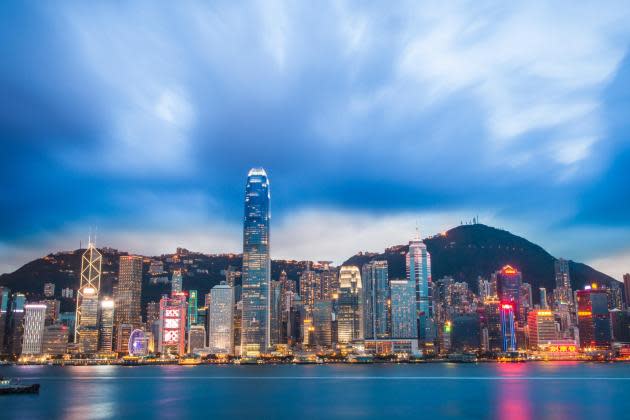Trio of Media Firms and Artists Quit Hong Kong

Independent digital news platform Initium Media announced on Tuesday that it will quit Hong Kong and relocate its headquarters to Singapore.
The same day, veteran journalist Steve Vines and contemporary artist Kacey Wong also announced their departure from Hong Kong. Vines has arrived in the U.K. Wong has moved to Taiwan.
More from Variety
All pointed to reduced liberty and freedom of expression in the city, following the introduction of a National Security Law a year ago and a series of crackdowns that have touched the media, entertainment and arts sectors as well as trades unions and education.
Vines described the situation in Hong Kong as “white terror,” a reference to the suppression of dissidents in Taiwan when the island was previously under martial law.
News of their exits from Hong Kong emerged a day after pro-democracy Canto-pop singer Anthony Wong Yiu-ming was arrested for alleged corruption by performing at an election rally.
Six-year-old Initium is a subscription-based Chinese-language platform targeting readers in the greater China region. Its executive editor, Susie Wu said in a letter to subscribers that the platform will maintain its editorial direction covering mainland China, Hong Kong and Taiwan and keep its staff intact despite the headquarters relocation.
“The road to freedom has become increasingly difficult over the past six years,” Wu said, citing plummeting press freedom in Hong Kong since the Initium was launched, the rise of “little pink” (online nationalist activists) in mainland China and a world that is increasing divided. Wu also urged the platform’s 60,000 subscribers to continue to support independent journalists around the world “during these dark times.”
In an email sent to friends and colleagues, Vines said the decision to leave Hong Kong was taken after “a cumulative series of alarming events, both personal and political.”
Vines was for many years the presenter for The Pulse, an English language current affairs magazine show produced by Radio Television Hong Kong, the city’s public broadcaster. He left RTHK after the show’s last episode aired in June.
“Hong Kong is now in a very dark place,” Vines wrote. “The personal implications are clear for people who have been public advocates for democracy and liberty and have been engaged in what has become the very high-risk occupation of journalism.”
“The white terror sweeping through Hong Kong is far from over and the near-term prospects of things getting better are simply non-existent,” he added.
Wong, who is best known for performance art that responds to the city’s political conditions, announced his departure from the city and arrival in Taiwan with a video. Shot in film noir style, “We’ll Meet Again” features an adaptation of Vera Lynn’s classic song of the same name as a metaphor for the artist bidding farewell to the city.
January’s mass arrest of 53 former pro-democracy lawmakers and activists, who were accused of violating the national security law by taking part in an unofficial election primary for the city’s Legislative Council election last year, prompted Wong to leave. “To me it symbolizes that the Hong Kong legal system as we know it, has been destroyed,” the artist said in an interview with Stand News.
Hong Kong’s environment is becoming less conducive for creative work, Wong said, pointing to increased self-censorship and criticism from authorities. “I’m a creative worker who needs 100% freedom, not the freedom to compromise,” he said, adding that in today’s democratically-run Taiwan he can continue to create the way he wants.
Since Hong Kong’s National Security Law, which bans activities related to secession, terrorism, subversion and collusion with foreign forces, was imposed on June 30, 2020, there have been mounting concerns over the city’s freedoms.
Last year, the New York Times moved some of its Hong Kong staff to Seoul, South Korea.
June saw the enforced closure of pro-democracy newspaper Apple Daily, with its founder Jimmy Lai, management staff and top editors being put behind bars awaiting trial under the security law.
However, Carrie Lam, the Chief Executive of Hong Kong, has repeatedly denied that the city’s freedoms are threatened by the security law. She has said on multiple occasions that the law only targeted a “small minority” and has successfully restored stability and prosperity of the city, as well as preserving freedoms.
Best of Variety
Sign up for Variety’s Newsletter. For the latest news, follow us on Facebook, Twitter, and Instagram.

 Yahoo Finance
Yahoo Finance 